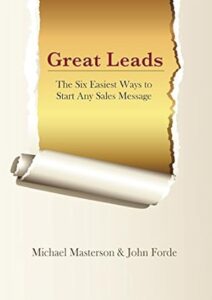* Clippings from my February Journal
* Thought-provoking, disturbing, and just-plain-crazy snippets from the news
* What’s lurking beneath the surface of “the swamp”? I’ll tell you…
* Feedback from your fellow readers
* And a truly thrilling PS
This essay and others are available for syndication.
Contact Us for more information.
* Clippings from my February Journal
* Thought-provoking, disturbing, and just-plain-crazy snippets from the news
* What’s lurking beneath the surface of “the swamp”? I’ll tell you…
* Feedback from your fellow readers
* And a truly thrilling PS

Nodding and napping
As an occasional 11th-hour babysitter for my grandkids, ranging in age from one to nine, I’m acutely aware of how important napping is – both to the nappers and to me.
I don’t need Google to know that in the early weeks infants are almost constantly napping. Before they reach their first birthday, babies take 2-4 naps a day and most preschoolers, even some five- and six-year-olds, still need at least one.
After that, for most children and certainly for most adults, naps are infrequent. I don’t think I took a single nap from the time I was seven to my 70th birthday.
Nowadays, naps are a regular part of my life. There is rarely a day when I don’t take a catnap, usually in the mid-morning or mid-afternoon. In recent months, the one nap hasn’t been feeling like enough. Fifteen minutes at nine or ten o’clock seems about right to keep me going till about two. But then I find myself nodding and looking for some horizontal piece of furniture on which to briefly lay my body down.
You’ve seen the illustration of the chronology of human movement – from fetal position to crawling to toddling to walking upright to walking in a stoop to returning to the fetal position just before death.
Someone should create something similar about napping – from much of the day as an infant to 2-4 times a day as a baby to once a day as a child to zero as a teenager/young adult… and then gradually back up again.
I’m already at one nap a day, bordering on two. And do you know what? I’m secretly looking forward to that next stage.
Used book, big price

Great Leads is a book that John Forde and I wrote in 2011. It was published by AWAI, a business that sells career courses to aspiring professional writers.
Great Leads teaches copywriters how to create successful direct response advertising pieces by deploying six “archetypal” leads – basically, the headline and first several hundred words of copy.
Of the two-dozen business and self-study books and courses I’ve written, I’d rate this among the top six. And it looks like there’s someone else that has the same opinion, as a used copy was recently listed on Amazon for $127.
This sometimes happens with how-to books published by medium- and small-sized publishing companies. Unlike the larger imprints with extensive reach and large advertising budgets (like John Wiley, which published Automatic Wealth and Ready, Fire, Aim), these smaller companies rarely take the risk of printing more than one edition. And although it’s not common, if there continues to be a demand for the out-of-stock book, it can inflate the price above the original list price, sometimes much higher.
That seems to be the case with Great Leads.
List price on the book is $14.95, and I have a small number of copies in storage that I’ve been offering to my readers for just $10 (including free shipping).
But now I’m wondering if I should talk to the publisher about doing another print run. Or perhaps take back the copyright and sell it myself. Or, if I’m clever, convert it into a course and have someone else sell it for $299.
Hmmm…
Doing business
I spent a fair amount of time last month brainstorming, consulting, coaching, and digitally conversing with colleagues in the investment publishing industry on the always challenging eternal challenges we talk about – product quality, marketing, and copywriting.
At the time, it seemed like these were all different discussions. But thinking about it now, I can see that there was a thread that ran through them. I believe the market for our products and services has been changing gradually but steadily for about 25 years and that we will not be successful in the future if we continue doing all the things that brought us success in the past. In fact, I think we need a radical change in every important aspect of our business: what our products look like, how we write them, how we advertise them, and how we price them.
I’m not sure anyone is going to listen to me. It’s difficult to believe that you should abandon what has been working well for decades. And of course, I could be wrong about all this. But what if I’m right?
Peace Corps reunion at Palm Bath & Tennis Club

I spent the last day of February at a VIP luncheon at a VIP venue, the Palm Beach Bath & Tennis Club. There were 18 in attendance, all distinguished looking men, roughly my age, and all former Peace Corp volunteers. The ostensible purpose was to talk about our experiences as volunteers in mostly distant third-world countries. The actual purpose was to raise money to build a Peace Corps Memorial Park in Washington, DC.
I attended because I’d been invited and because I’d heard that the Palm Beach Bath & Tennis Club was the place to be. It’s across the street from Mar-a-Lago, Trump’s private residence in Palm Beach. And although it doesn’t have the same panache as his Moorish estate, it has enough to satisfy the likes of me.
As lunch was being served, everyone had an interesting story to tell. Some were funny. Some were touching. Some were amazing. And not surprisingly, virtually all of them involved overdrinking. Such was the age!
We talked then about plans for the memorial, about how much money had been raised so far ($6 million) and how much more was needed to get the project done (another $6 million). We shared insights from our experiences as fund raisers or fund givers, and agreed we would each, in our own way, consider what we could do to advance the cause.
The atmosphere was a bit formal, but the mood was relaxing towards comfortable and even casual. Before the event ended, I was already hoping that we would all meet again one day.
What struck me was how quickly the group’s openness to and trust for one another developed. Here we were, 18 septuagenarian and octogenarian men who had obviously enjoyed successful and rewarding careers, bonded together by a common experience decades earlier. A bond formed, I believe, by all of us having spent two years at such a young age in a foreign place, speaking a foreign language, working within cultures so different from our own. It happens to soldiers at war and to others that have been through difficult times, too. There is something about it that, although we may rarely talk about it to others, or even think about it when we are alone, nonetheless stayed with us and, in some significant way, formed us into the individuals we became.
I came to the luncheon motivated by a minor interest in seeing what the Palm Beach Bath & Tennis Club looked like from inside its walls and left with a good feeling about those two years I’d spent as a Peace Corps volunteer and 17 potential new friends.
ZenHippo at Paradise Palms
I had a good time at our botanical and sculpture garden last Saturday. We’ve been getting a steadily increasing flow of visitors during the three days we are open each week. But on Saturday, we had an additional group of at least 60 who had come to a promotional event for ZenHippo, a local nonprofit that provides play-based educational classes and activities for toddlers and their parents.

Their programs are well done. I know because I’ve attended a few with H and E. It’s run by two young moms who seem to have done a good job growing the business. Saturday’s event, which was meant to establish a new base for ZenHippo in Delray Beach, was located between what I think of as Paradise Palms’ Kid Town (with a playground and a “scary” little forest) and Adult Town (with a Tiki bar and game center).
Everyone that came seemed to very much enjoy themselves, so I am expecting to be hosting many more ZenHippo events in the future.
290 building update
We finally finished the expansion and rehab of my Cigar Club, redoing the exercise area and adding a second floor, which contains a largish gallery for public exhibitions of my Central American Art collection and two offices – one for Gio and one for me – with windows! (A first in 30 years.)
Did You Hear About This?
Jackass climate activists at it again!

On a square-foot basis, the Rijksmuseum could be my favorite museum in the world, with a collection of all the greatest works of the greatest Dutch artists, from Rembrandt to Van Gogh. Thus, I was disappointed to hear that Extinction Rebellion, the naïve activist group whose tactics are as obnoxious as their ideas are nonsensical, “cyber-attacked” the museum last month. They did it by booking out a weekend exhibition online and then cancelling their reservations at the last minute. As a result, the museum, normally packed on a holiday weekend with about 8,000 people, was practically empty.
Why did they do it? Because the museum banks with ING, a global financial institution that, like any large company, respects its fiduciary duties to its shareholders.
The “ineffectuals” ineffectually protesting at the SOTU Address
I didn’t watch Trump’s State of the Union Address, but I caught some clips on social media and read a few online reviews, including this from John Leake writing in Focal Points:

“A friend just sent me the image above…. I was instantly reminded of the scene in the film Animal House when the endearing but hapless Larry Kroger and Kent Dorfman attend a party at the snobby and sadistic Omega House and are promptly shuffled to a side room and introduced to Muhammed, Jugdish, Sidney, and Clayton.
“Back when Harold Ramis and Douglas Kenney wrote the script in 1978, we all understood that Douglas Neidermeyer and Greg Marmalard were terrible guys and that Larry Kroger, Kent Dorfman, Muhammed, Jugdish, Sidney, and Clayton were something like ‘the meek who shall inherit the Earth.’ However, at some point over the last 20 years, the pendulum of the American Zeitgeist swung to the other extreme, resulting in silly, ineffectual people like Representative Nydia Velázquez being elected to high office.
“Now, in Trump’s second term, the ineffectual are losing the support structure that has propped them up in power. Being ineffectual, they are flailing about looking for some means of resisting their acceleration towards irrelevance and obscurity. It seems that holding up lollipop-shaped protest signs during the President’s address is the best they can do.”
Tapper’s surprise: Yes, Biden was brain dead!

I don’t know whether to admire him for his balls or mock him for his brazen sycophantism, but CNN’s Jake Tapper deserves some kind of award for writing and promoting a book on Biden’s mental decline, after having fiercely denied that the old man was unplugged if not batshit crazy from 2020 to 2024. As someone (sorry, I didn’t make a note of the name) said, Tapper is both the person who should not have written the book and the person who should have, because “his dishonesty and hypocrisy exactly encapsulate modern journalism.” Click here
Speaking of hypocrisy…

I literally slapped the side of my head the other day reading Jeff Bezos’s statement last week about remaking the image of The Washington Post. He said, “We are going to be writing every day in support and defense of two pillars: personal liberties and free markets.” Click here.
Newsy cartoon of the month

DOGE: Can Elon Drain the Swamp?
Was He Insane to Even Try?

Two weeks ago, on President’s Day, a friend mentioned that she was on her way to a political protest. Knowing her to be left-leaning and strongly anti-Trump, I assumed that she was attending to object to the usual leftist issues – racism, sexism, transphobia, colonialism, etc.
I was wrong. It was organized, as one of the sponsors put it, to protest “how our constitutional rights are trampled upon, how the authority of the President is being usurped by those who seek to consolidate power for personal gain.”
Expressed more directly, they were protesting Elon Musk and his leadership of DOGE – the Department of Government Efficiency.
But why? What’s wrong with eliminating government waste and inefficiency?
I haven’t yet figured that out. I hope it’s not Trump Derangement Syndrome – the brain disease whereby victims reflexively believe that everything Trump does is an existential threat to not just democracy, but to life as we know it.
DOGE was created by President Trump through an executive order he signed on Inauguration Day. Under the order, DOGE will be a temporary organization within the White House that will spend 18 months (until July 4, 2026), carrying out its mission.
This is not the first time in my lifetime that presidents have hired teams to eradicate government waste. Jimmy Carter did it. Bill Clinton did it. Even Barack Obama did it.
And why wouldn’t they?
Consider the size of federal spending today: The government will spend approximately $7 trillion this year, with a budget deficit of almost $2 trillion. (Spending on Social Security old-age and survivor benefits will be around $1.4 trillion, and net spending for Medicare will be close to $1 trillion.)
And now think about the way those dollars are spent. Do you know how many bills, acts, orders, and allocations comprise that spending? Thousands! And the number of individual payments? We must be talking about tens of thousands of checks issued, if not more. With a spending machine that large, how could there not be considerable inefficiency and waste?
And when you consider the fact that most of this spending gets initiated, approved, and processed through unelected government agencies that report to no one but themselves, how could there not also be enormous corruption and fraud?
Which is to say that there should always be an effort to reduce waste and fraud and government spending as a general principle.
But it should not surprise anyone that if somebody took such a mission seriously – and went about seriously eliminating waste and fraud – there would be serious if not deadly resistance to it.
Which is to say that I shouldn’t be surprised to learn that so many publications that I once thought of as conservative (and fiscally conservative, certainly) – like Forbes and the WSJ – would be aligning themselves with Democrats in questioning and even challenging much of what DOGE is trying to do.
Millions of government employees are making more than their counterparts in the private industry, with, for the most part, a lifetime employment guarantee and with, for the most part, little or nothing meaningful to do every day. Why wouldn’t they want to get rid of Musk and his damn DOGE?
On an episode of the Joe Rogan show, he said that he had discovered what “might be the biggest fraud in history.” He was talking about the Social Security Administration, and he made two assertions:
* The SSA has 394 million names registered as “eligible” for Social Security payments. Yet there are only 334 million people living in the United States.
* Of those 394 million eligible recipients, 20 million are over 100 years old, according to the SSA. Yet, according to the US Census Bureau, there are only about 101,000 Americans over 100 eligible to receive Social Security benefits.
Although spokespeople from the SSA do not dispute the numbers per se, they insist that they do not represent checks being cut. The discrepancy, they say, is due to longstanding glitches in SSA’s computing system, that, for some reason, have not be corrected.
Anyway, this is Just the Facts, so let’s look at the facts – the seemingly crazy expenditures that DOGE has been uncovering. (Caution: Remember, these are early numbers and they have not been thoroughly vetted. Some of them are almost certainly wrong. And some others may be accurate, but the conclusions we can draw from them may not be as easy as some, including me, would like to believe.)
Let’s begin with USAID, since that’s the agency that has so far attracted the most attention.
The United States Agency for International Development

USAID was created in the early 1960s, ostensibly to provide aid to impoverished peoples and distressed regions around the world, although it’s long been known to involve itself with all sorts of political and social intrigue.
The agency currently operates out of 60 nations and employs 10,000 people. Of all the questionable expenditures DOGE has taken note of, USAID has some of the most questionable.
For example:
* $10M for “Mozambique voluntary medical male circumcision”
* $9.7M for UC Berkeley to develop “a cohort of Cambodian youth with enterprise driven skills”
* $2.3M for “strengthening independent voices in Cambodia”
* $32M to the Prague Civil Society Centre
* $40M for “gender equality and women empowerment hub”
* $14M for “improving public procurement” in Serbia
* $486M to the “Consortium for Elections and Political Process Strengthening,” including $22M for “inclusive and participatory political process” in Moldova and $21M for voter turnout in India
* $29M to “strengthening political landscape in Bangladesh”
* $20M for “fiscal federalism” in Nepal
* $19M for “biodiversity conversation” in Nepal
* $1.5M for “voter confidence” in Liberia
* $14M for “social cohesion” in Mali
* $2.5M for “inclusive democracies in Southern Africa”
* $47M for “improving learning outcomes in Asia”
* $2M to develop “sustainable recycling models” to “increase socio-economic cohesion among marginalized communities of Kosovo Roma, Ashkali, and Egypt”
* $17M to an NGO (non-governmental agency) to produce a knockoff Muppet show in Iraq (which ended up getting 200 views per episode)
The Dept. of Education and the National Institutes of Health


Selected head-scratchers:
* $370M on diversity, equity, and inclusion (DEI) programs
* A $419,470 university study to “determine if lonely rats seek cocaine more than happy rats”
* $2M in government grants handed to Cornell University to infect cats with COVID-19 (When the experiments were over, the cats were killed.)
* $288,563 in taxpayer money to create “affinity groups’’ among birdwatchers based on “who they are and how they identify’’
* And my favorite: a $10,000 grant to the National Endowment for the Arts for The Bearded Ladies Cabaret – a “queer cabaret arts organization”– to support its “climate change-themed ice-skating performances”

|
The Defense Dept. and the Pentagon


The Pentagon’s $850 billion budget is in DOGE’s target range. There’s no doubt that some percentage of that is being misspent or spent unwisely. And that’s hardly news.
* The Defense Business Board found in 2015 that the Dept. of Defense could save $125 billion over five years by renegotiating service contracts and consolidating bureaucratic processes.
* A congressional inquiry in 2018 found that the Air Force was spending $1,300 for each reheatable coffee cup aboard one of its aircraft. The Air Force spent $32,000 replacing 25 cups, according to Sen. Chuck Grassley (R-Iowa).
* A two-year audit by the Defense Department Inspector General last year found that Boeing overcharged the Air Force by 8,000% for soap dispensers. They overpaid by $149,072.
The Environmental Protection Agency

The Environmental Protection Agency (EPA), inspired by DOGE’s crackdown on federal spending, said it had located $20 billion in tax dollars within the agency that the Biden administration reportedly “knew they were wasting.”
The EPA found that just eight agencies were controlling the distribution of tens of billions of taxpayer dollars to different entities “at their discretion,” such as the Climate United Fund, which reportedly received just under $7 billion.
The Federal Emergency Management Agency

You may have heard that FEMA gave over $59 million to house illegal immigrants in luxury New York City hotels just last week. That turned out to be not entirely true, as only $19 million of it was for direct hotel costs, and none of the hotels were luxury.
So, what does it all amount to?
So far, DOGE has reported that it has uncovered nearly $1 trillion worth of inefficiency, waste, and/or fraud that occurred in Biden’s last year in office, plus $900 billion that occurred in 2021. There will be, as there has been already, some too-early assumptions about corruption, but it’s hard to argue with the gross facts: one trillion dollars and counting.
CNN: Still suffering from Trump Derangement Syndrome!
You’d think that after being embarrassed by their eight-year activist campaign promoting the then-unverified and now completely discredited Steele Dossier/Russia Collusion story (dreamed up and paid for by the Hillary Clinton Reelection campaign), CNN would have shifted its reporting on Donald Trump towards a more balanced view.
On Monday last, I caught a rerun of the program where their star pit bull, Dana Bash, had Sen. Chris Murphy (D-Conn.) on to get his “thoughts” on US/Ukraine relations following the previous Friday’s uncomfortable spat between President Trump and President Volodymyr Zelensky.
Here is some of what Murphy said:
“The White House has become an arm of the Kremlin… the entire pretext for that meeting yesterday was an attempt to rewrite history to sign a deal with Putin that hands Putin Ukraine….
“That is disastrous for US national security. That means that China will be on the march. Putin may not stop. America may be at war with a nuclear power….
“Donald Trump wants us to have our closest relationships with despots all around the world, because that makes it easier for him to transition America into a kleptocratic oligarchy, where Elon Musk and Donald Trump rule and steal from the American people.”
A reaction the following Monday from the WSJ that captures my response perfectly:
“Reviewing [the spat], one can certainly find fault with a number of the comments – and not just from the US side. But to suggest that the Zelensky visit was staged by the White House to hand more power to the world’s dictators and risk nuclear war in order to help Mr. Trump destroy our republic so that Elon Musk can steal money from Medicaid is sheer lunacy.
“Mr. Murphy’s unhinged rantings were not even consistent on their own mad terms. If the Trump administration really were an arm of the Kremlin, why would Putin be orchestrating this grand plot to enrich Mr. Musk instead of keeping the money for himself?
“And anyway, who wastes time designing risky criminal schemes to enrich the world’s richest man?”
No, they didn’t get the message. Since they began airing their anti-Trump conspiracy theories in 2016, CNN’s viewership has done nothing but tumble. In February, they had their lowest-rated month in a decade, with viewership at 587,00, compared to 2.6 million for Fox News and 1.2 million for MSNBC.
One has to wonder: Have they even considered the possibility that the drastic falloff might be due to an increasingly large percentage of their viewers increasingly finding their reporting on the President to be unfair and untrustworthy?
Or, worse, that their TDS actually contributed to Trump’s strong victory in November?
I guess not.
Bari Weiss on Christianity
“Whether you believe in the story of the virgin birth and resurrection, or you believe that those miracles are myths, one thing is beyond dispute: The story of Jesus and the message of Christianity is among the stickiest ideas the world has ever seen.
“Within four centuries of Jesus’s death, Christianity had become the official religion of the Roman Empire. It had 30 million followers – which amounted to half the empire. Today, two millennia later, Christianity is still the largest religion in the world, with more than 2 billion adherents.”
Re my Feb. 28 “Report Card” on Trump:
“I thought your piece on Trump’s second term (so far) was good and well-balanced. I didn’t vote for him, but I’m rooting for him.” – JP
“If it’s not impudent to say so, Mark, I think your writing is getting better. The essay on the first month of DT’s second term was excellent. You made several points I’ve been thinking but hadn’t yet figured out how to say.” – PLC
“What a MAGA loser you’ve turned into! I was disgusted by your so-called ‘Report Card’ on Trump. He’s the world’s next Hitler. And Elon Musk is worse!” – RF
From JG re the “Collecting Art” chapter in the Feb. 21 issue
“I used to be fascinated by my grandfather’s art collection. I loved the art that he bought. The pieces really added beauty to his house, and the fact that the art appreciated in value was compelling. As I got older though, I realized something. The real pleasure and feeling you get is the feeling of beauty that the artist felt when he created the piece. Thus, the real pleasure is creating.”
Listen to this!
Allie Sherlock & 12-year-old Ed Sheeran singing Hallelujah…